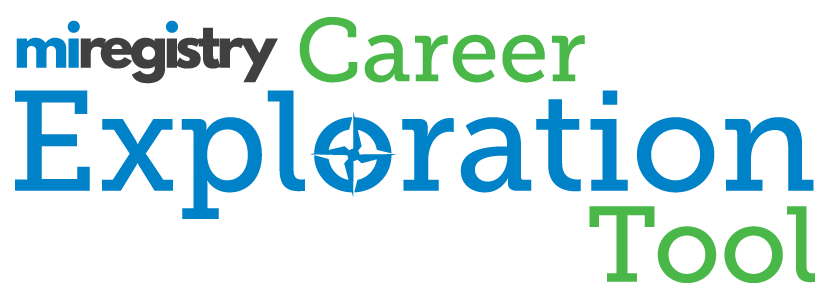Supporting those who Work with Children and Families with Career Development
Early care and education professionals may seek training on a variety of topics. They may be looking to refresh their health and safety knowledge, be looking to learn more about a particular aspect of child or youth development or even be interested in learning business skills to market a center or home based program. It is vitally important that experts in particular topics or subjects share their knowledge with providers.
Trainers may host workshops or webinars, speak at conferences, or offer in-service trainings to entire programs. Trainers often, but not always, have direct experience working in the field themselves.
- More information about specific qualifications for Trainer roles can be found by exploring Professional Level 1 on the MiRegistry Career Pathway.
A CDA Professional Development Specialist uses their early childhood education expertise to assess CDA candidates’ competencies and facilitate reflective conversations with the candidates.
- More information about specific qualifications for CDA Professional Development Specialist role can be found by exploring Professional Level 2 on the MiRegistry Career Pathway.
The Early Childhood Specialist (ECS) serves as an instructional coach for Great Start Readiness Program (GSRP) classrooms. Working directly alongside classroom teachers and their teaching teams, the ECS supports learning by providing personalized, strength-based coaching and guidance. The role focuses on fostering both individual and group professional learning opportunities that expand and refine educators’ understanding of researched, evidence-based instructional pedagogy.
Through systematic classroom observations, data-driven analysis, and targeted coaching sessions, the ECS collaborates with staff to address identified needs and achieve desired student learning outcomes—all while ensuring that classroom practices align with Michigan’s Early Childhood Standards of Quality for Birth to Kindergarten (ECSQ) and GSRP requirements. The Early Child Specialist plays a critical role in improving teaching practices and enhancing child learning outcomes across the GSRP program.
To be hired or contracted as an ECS, a candidate must have:
- A Graduate Degree in early childhood education or child development and five or more years of relevant job experience in early childhood education
- A Bachelor’s Degree equivalent to that required to be a GSRP lead teacher and
10 or more years of relevant job experience in early childhood education- A Graduate Degree in a closely related field and five or more years of relevant job experience in early childhood education
- A Bachelor’s Degree in a closely related field and 10 or more years of relevant job
experience in early childhood education
- Those working in an Early Childhood Specialist (ECS) role typically reflect a Professional Level 4 on the MiRegistry Career Pathway.
Job Boards for Job Seekers and Recruiters
Financial Supports
Use self-assessments to understand how your skills and interests might align with career opportunities.





